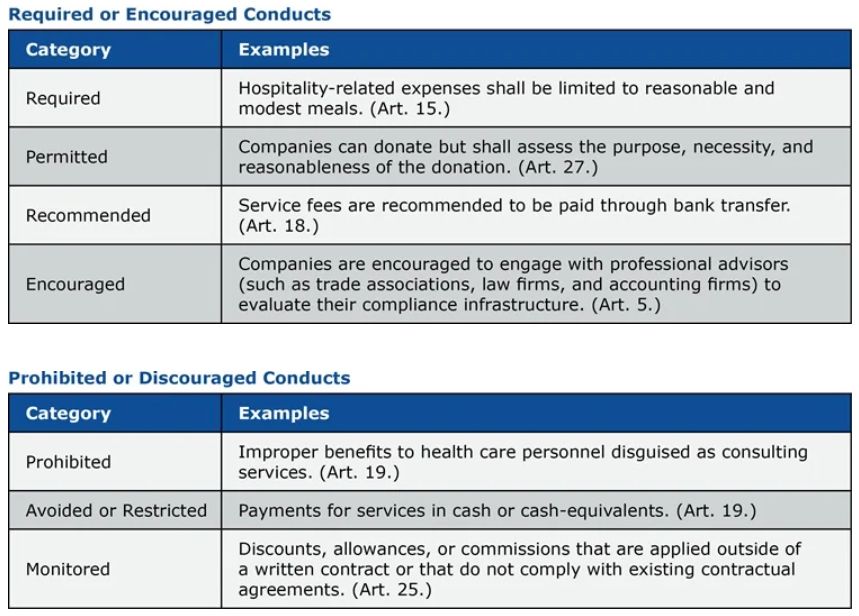- within Accounting and Audit topic(s)
These Guidelines are broadly applicable to pharmaceutical and medical device companies and other third parties involved in the research, development, production, and distribution of medical products within China. These Guidelines address bribery risks associated with interactions with health care organizations ("HCOs") and health care professionals ("HCPs"), irrespective of whether they practice in a private or public capacity. These Guidelines represent the most definitive and authoritative guidance to date on Chinese regulators' perspectives regarding practices in the health care and life sciences ("HCLS") industry.
Under Chinese rules and regulations, HCOs are defined to include hospitals, clinics, township health centers, community health service centers, medical offices, and outpatient departments. Meanwhile, HCPs are defined extensively to include licensed doctors, assistant licensed doctors, registered nurses, pharmacists, laboratory technicians, imaging technicians, village doctors, and other professionals engaging in medical and health care work.
Risk-based Categorization for Daily Business Activities
The Guidelines address nine business activities that HCLS companies routinely engage in that have been identified as areas at risk for bribery, namely: (i) academic promotional activities, such as the meetings with HCPs to provide academic information and technical consultations; (ii) hospitality, e.g., meals and entertainment for HCPs during business interactions; (iii) consulting service fees to HCPs; (iv) outsourcing medical research, manufacture, and other business activities to third parties; (v) financial incentives provided at the point of sale, e.g., discounts, rebates, and commissions; (vi) donations, sponsorships, and grants; (vii) free supply of medical devices to HCOs; (viii) clinical research; and (ix) sales through retail pharmacies.
The Guidelines provide detailed guidance on managing these risks as follows:

Enhanced Scrutiny for Cooperation With Government Investigations
The Guidelines align with generally viewed standard best practices and industry guidelines that apply in other parts of the world. While previous laws and regulations emphasized the importance of cooperation with such investigations, these provisions did not clearly distinguish between circumstances that might be regarded as obstructing a SAMR investigation and situations in which non-compliance with investigative requests is based on legitimate grounds. In this regard, the Guidelines provide more specific scenarios that constitute obstruction, such as unsupported claims of business secrets or lack of internal approval. SAMR retains significant discretion in determining what constitutes delay and obstruction.
Although the new Guidelines are not legally binding in China, they are closely aligned with established Chinese anti-bribery laws. As the new Guidelines provide detailed examples and frameworks that clarify these existing provisions, they are expected to be deemed as key reference points for enforcement agencies and likely to significantly influence enforcement practices.
The content of this article is intended to provide a general guide to the subject matter. Specialist advice should be sought about your specific circumstances.
[View Source]











